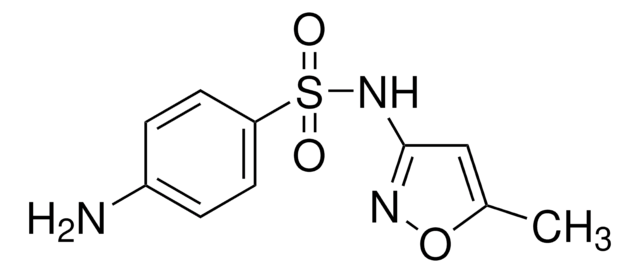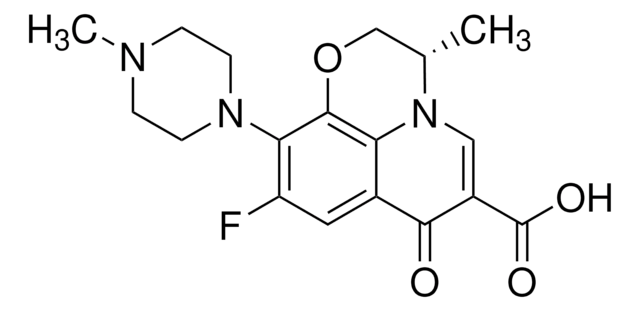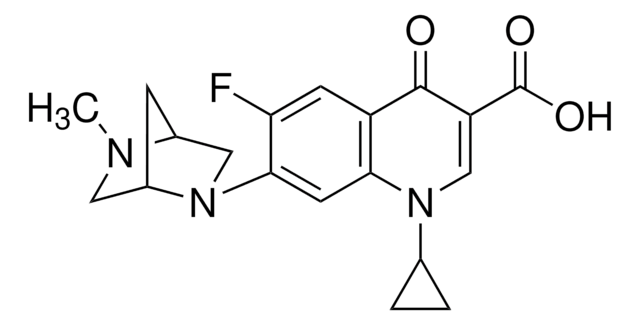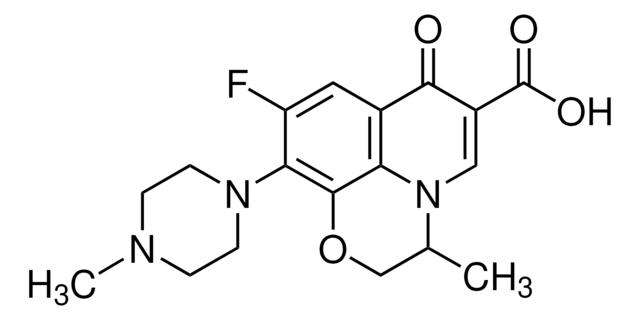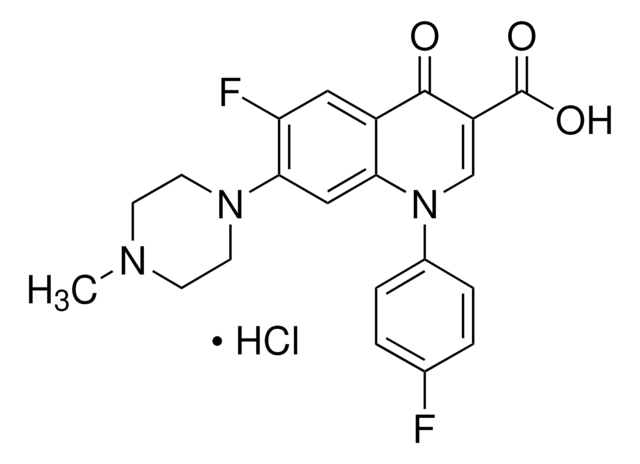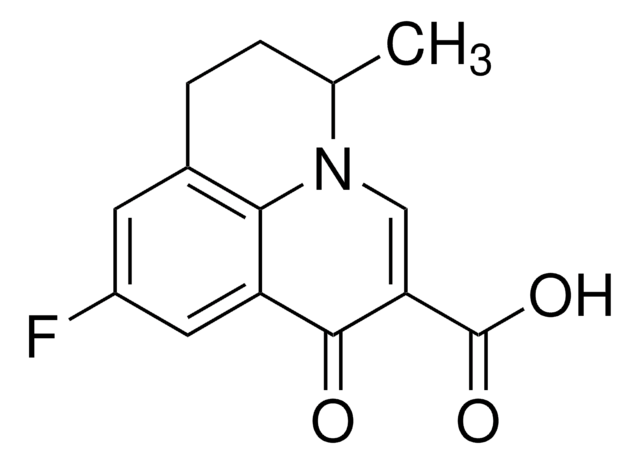33434
Ciprofloxacin
VETRANAL®, analytical standard
Synonym(s):
1-Cyclopropyl-6-fluoro-4-oxo-7-(piperazin-1-yl)-1,4-dihydroquinoline-3-carboxylic acid, Ciprobay
About This Item
Recommended Products
grade
analytical standard
Quality Level
Agency
EPA 1694
product line
VETRANAL®
shelf life
limited shelf life, expiry date on the label
technique(s)
HPLC: suitable
gas chromatography (GC): suitable
antibiotic activity spectrum
Gram-negative bacteria
Gram-positive bacteria
application(s)
agriculture
environmental
forensics and toxicology
pharmaceutical (small molecule)
format
neat
Mode of action
DNA synthesis | interferes
enzyme | inhibits
SMILES string
OC(=O)C1=CN(C2CC2)c3cc(N4CCNCC4)c(F)cc3C1=O
InChI
1S/C17H18FN3O3/c18-13-7-11-14(8-15(13)20-5-3-19-4-6-20)21(10-1-2-10)9-12(16(11)22)17(23)24/h7-10,19H,1-6H2,(H,23,24)
InChI key
MYSWGUAQZAJSOK-UHFFFAOYSA-N
Looking for similar products? Visit Product Comparison Guide
General description
Application
Legal Information
Storage Class Code
11 - Combustible Solids
WGK
WGK 2
Personal Protective Equipment
Regulatory Listings
Regulatory Listings are mainly provided for chemical products. Only limited information can be provided here for non-chemical products. No entry means none of the components are listed. It is the user’s obligation to ensure the safe and legal use of the product.
JAN Code
33434-100MG-R:
33434-VAR-R:
33434-BULK-R:
Choose from one of the most recent versions:
Already Own This Product?
Find documentation for the products that you have recently purchased in the Document Library.
Customers Also Viewed
Our team of scientists has experience in all areas of research including Life Science, Material Science, Chemical Synthesis, Chromatography, Analytical and many others.
Contact Technical Service


